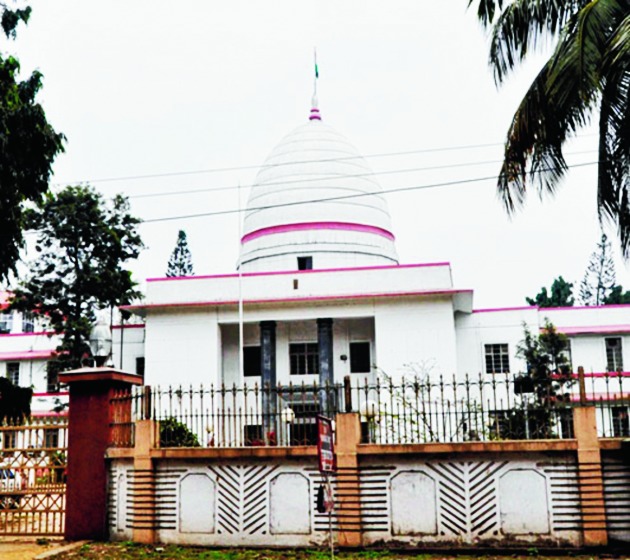Gauhati High Court has ordered eviction of non-tribals and other persons “not eligible to hold possession of land” in the tribal belts and blocks protected under Chapter X of Assam Land and Revenue Regulation Act, 1886.
The court passed the order in response to a public interest litigation filed by Prodyut Kumar Bora, seeking the court’s intervention in protecting the tribal belts and blocks from illegal occupation by non-tribals and others.
Assam has 17 tribal belts and 30 blocks in Tinsukia, Sonitpur, Nagaon, Morigaon, Lakhimpur, Kamrup, Kamrup (metro), Goalpara, Dhemaji, Darrang, Bongaigaon and the four districts under Bodoland Territorial Council (BTC).
The order was issued to the deputy commissioners of Bongaigaon, Kamrup (metro), Morigaon, Sonitpur and Tinsukia districts and the principal secretary of BTC, which governs Kokrajhar, Chirang, Baksa and Udalguri districts. Maximum encroachment was observed in these nine districts.
A division bench of Chief Justice Ajai Lamba and Justice Achintya Malla Bujor Barua had on December 9 ordered the deputy commissioners of districts having tribal belts and blocks and the principal secretary of BTC to evict all non-tribal and other people illegally occupying land, following due process of law.
The court asked the DCs and the principal secretary to file their action-taken report via personal affidavits by February 3 next year. It will take up the matter on February 5.
“In case appropriate steps are not taken to give effect to this order, the court would consider imposing costs to be recovered from the salary of the concerned officers who are found responsible in causing a delay in the process of this court,” the order read.
In November, the state government had, in an affidavit filed by the joint secretary to the revenue and disaster management department, Assam, Gitanjali Bhattacharyya, informed the court that it had taken steps under a new land policy (approved by the state cabinet but awaiting gazette notification) to free land occupied by non-tribal people in the protected areas.
“This court directs the deputy commissioner and other related officers concerned to strictly implement in letter and spirit the provisions of Chapter X of the Regulation of 1886. Consequently, the areas in illegal occupation of non-tribal and other persons who are not eligible to hold possession of land be evicted after following due process of law,” the order said.
It also directed the deputy commissioners to take utmost care while according permission for transfer of land within tribal belts and blocks.
Following the court order, 101,723 encroachers will have to be evicted from 389,705 bighas in the tribal belt and blocks in the BTC-administered Bodoland Territorial Area Districts (BTAD) — 83,656 encroachers from protected classes (tribals) on 331,496 bighas and 17,407 encroachers from non-protected classes (non-tribals) on 54,798 bighas.
Senior advocate Nekibur Zaman told The Telegraph, “The court has upheld the rule of law as laid under Chapter X of the Assam Land and Revenue Regulation Act of 1886. It will be the duty of the government, if it complies with the order, to compensate the illegal settlers or accommodate them in other areas.”
The president of Bodoland Janajati Suraksha Mancha, Janak Lal Basumatary, which has been advocating the rights of tribals, hailed the order. “Tribal belts and blocks are for tribals and it is to be seen if the government executes the order.” He said the order is a precedent for cases of encroachment of tribal land by non-tribals pending before the high court.
A human rights activist of Udalguri said on condition of anonymity, “There is scope for the order being challenged as many of these so-called encroachers have resided in tribal belts and blocks for time immemorial and it is not a matter of compensation or rehabilitation but of distributive justice.”
He said, “Migration is a natural phenomenon and the local communities, which have assimilated with tribals and have the same food habits and culture, are now being labelled as outsiders and encroachers. Many of them even hold land pattas.”
Carrying out the order will test the resolve of the state administration going by what happened in 2017, when Gauhati High Court had ordered eviction in Amchang reserve forest, on the outskirts of Guwahati in Kamrup (metro) district, and the administration had demolished over a thousand houses. However, following a massive uproar and plea of the government to allow time to complete the eviction drive, the court allowed the state government to stop the eviction drive in residential areas.
The state cabinet had this month decided to protect the land of the indigenous people by implementing the new land policy, the details of which will be finalised by next month.
Sailen Kumar Sarma, social activist and a member of Gana Suraksha Party (GSP), floated by MP Naba Kumar Sarania, said the court order would have a bearing on the BTC polls in 2020. The GSP has been advocating the protection of rights of non-tribals in BTC where the Bodo population stands at around 23 per cent only.











